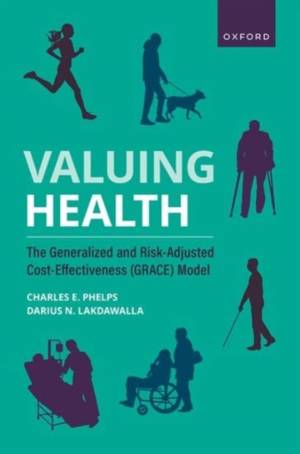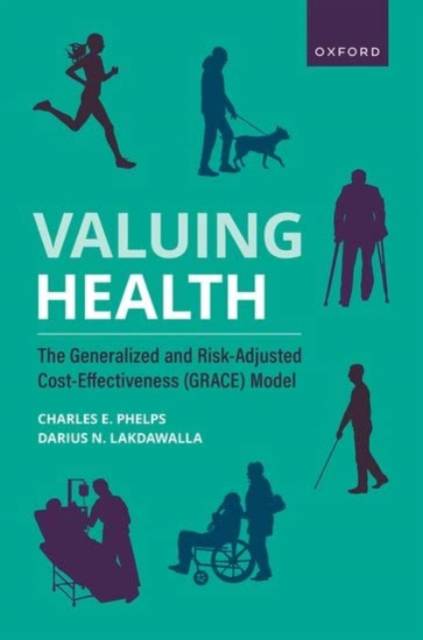
- Retrait gratuit dans votre magasin Club
- 7.000.000 titres dans notre catalogue
- Payer en toute sécurité
- Toujours un magasin près de chez vous
- Retrait gratuit dans votre magasin Club
- 7.000.0000 titres dans notre catalogue
- Payer en toute sécurité
- Toujours un magasin près de chez vous
Valuing Health
The Generalized and Risk-Adjusted Cost-Effectiveness (Grace) Model
Charles E Phelps, Darius N Lakdawalla
Livre relié | Anglais
119,45 €
+ 238 points
Description
Cost-effectiveness analysis (CEA) plays an important role in health policy debates, helping to shape resource allocation and pricing decisions. Yet many economists also recognize that the current framework can offer misleading and incomplete results. Current CEA methods imply that health improvements are equally valuable to those in good health and poor health, which fails to recognize the increased value of health improvements for those with severe illness or disability. Valuing Health introduces the generalized risk-adjusted cost-effectiveness (GRACE) model as a more accurate method for determining the value of medical treatments and technologies. The GRACE model generalizes the underlying CEA assumption of constant gains in health care, demonstrating through diminishing returns the greater economic value of improving the quality of life for individuals with disability or severe illness. Valuing Health also provides sensitivity analyses to show how value measurements change alongside key parameters, including the potential effects of various combinations of risk preferences on the aggregate value of treating a defined population with any set of available treatments. It concludes with a discussion of the ethical differences between the CEA and GRACE methods and outlines steps for implementing the GRACE model to replace standard CEA as the proper method for valuing medical interventions. Valuing Health offers a revelatory reconceptualization of current valuation models in health economics with clear guidance for inclusive pricing and regulation that reflects the true value of modern health care.
Spécifications
Parties prenantes
- Auteur(s) :
- Editeur:
Contenu
- Nombre de pages :
- 328
- Langue:
- Anglais
Caractéristiques
- EAN:
- 9780197686287
- Date de parution :
- 09-02-24
- Format:
- Livre relié
- Format numérique:
- Genaaid
- Dimensions :
- 244 mm x 163 mm
- Poids :
- 616 g

Les avis
Nous publions uniquement les avis qui respectent les conditions requises. Consultez nos conditions pour les avis.






